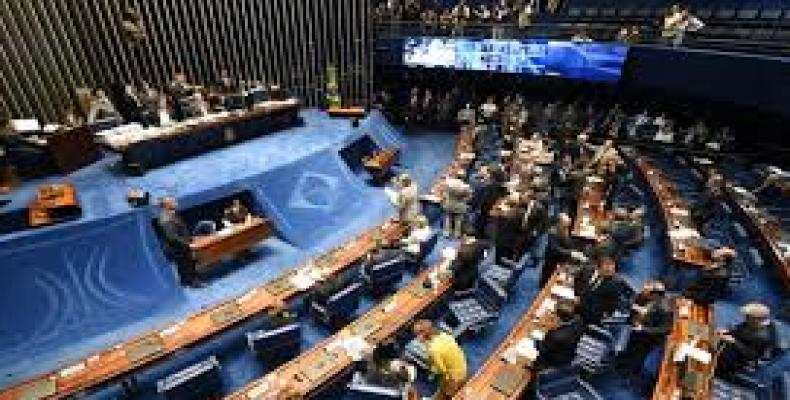Brasilia, September 14 (RHC)-- Brazil's Chamber of Deputies is voting on whether to privatize the country's offshore pre-salt assets, a move social organizations argue will put the country's natural resources in foreign hands.
Brazilian lawmakers are debating whether to approve Bill 4567/16, which would allow the removal of Petrobras' exclusive rights over the exploitation of Brazil's pre-salt reserves. Brazil's current offshore oil exploration framework was designed by former President Luiz Inacio da Silva of the Workers' Party and explicitly favors the state's interests via state-run oil company Petrobras, to the disappointment of multinational oil companies.
In 2010, a reform introduced by the Lula administration required Petrobras to be the sole operator in all pre-salt fields with a minimum 30 percent stake, restricting private investment. But Brazil's recently-installed Foreign Minister Jose Serra, who introduced Bill 4567/16 to the Senate, told foreign oil companies back in 2009 that the PT's framework for offshore oil exploration could easily be reversed, according to WikiLeaks.
Serra, who was then seeking the presidency, told Chevron that he would work to change the framework to suit the oil giant's interests. Chevron had said they would refuse to even make a bid under the framework.
“Let those guys [PT] do what they want. There will be no bid rounds, and then we will show everyone that the old model worked ... And we will change it back,” Serra told Patricia Pradal, head of government relations for Chevron.
With production increasing from approximately 41,000 barrels per day in 2010 to a million in mid-2016, Petrobras believe Brazil's pre-salt discovery is one of the world's most important in the past decade. It is believed that reserves of over 50 billion barrels could exist in the basin, nearly four times the current national reserves of roughly 14 billion barrels.
Brazilian Parliament to Vote on Privatizing Major Pre-Salt Oil Assets

Matérias relacionadas
Comentários
Deixe um comentário
Todos os campos são requeridosMais vistas
- Trump se vangloria de mensagem triunfalista ao Congresso dos EUA
- China e Cuba sublinham o contributo das mulheres para a sociedade
- Apresentam documentário sobre a cativante compositora cubana Marta Valdés
- Presidente Díaz-Canel reconhece a contribuição dos trabalhadores do Turismo
- Havana acolhe uma exposição de mulheres cineastas cubanas

